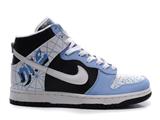The boss's words made me lose 300,000 yuan and even sell the gold medal, which made me so angry that I left.
In the process of consumption in enterprises, everyone must have encountered the situation where passers-by return goods, and we will not discuss the reasons here. So, how should the returned goods be handled? Yesterday, I told myself a case about the calcium carbonate business, hoping it would give me some inspiration.
A calcium carbonate enterprise, after several rounds of fierce bidding cooperation, fortunately became the raw material supplier for an international papermaking enterprise, with monthly orders reaching 12,000 tons. For this newly commissioned calcium carbonate enterprise, this was truly a great piece of good news. Everyone in the company was eager to work hard and handle this large order well.
However, there were unexpected setbacks. In the Nth shipment, after customer inspection, more than 900 tons did not meet the specific standards stipulated in the contract. Quality is the essence of an enterprise, and despite repeated communications and negotiations, the customer still insisted on returning all 900 tons of calcium carbonate.
Such a large-scale return incident left this newly commissioned calcium carbonate enterprise at a loss. The 900-plus tons of returned calcium carbonate quickly became a hot potato. The company decided to send its best gold medal manager to resolve this issue.
Because of the large volume, these 900-plus tons of calcium carbonate could not immediately find a place to store them, so they had to be temporarily piled outdoors at the dock. It was the rainy season, and if not resolved promptly, the calcium carbonate would clump upon contact with water, rendering it useless. After receiving the mission, the gold medal manager made a call, persuading and negotiating, and eventually found a buyer in Dongguan who was willing to purchase the entire batch, but only at half the market price.
When the gold medal manager reported this to the boss, hearing that the price was only half of the market rate, the boss became furious, saying his product was too good and he could easily find a better buyer, refusing to sell.
The gold medal manager, seeing the situation, pleaded again, asking the Dongguan buyer to increase the price. Unable to resist the persistent persuasion and being long-time acquaintances, the Dongguan buyer agreed to raise the price by another ten percent, meaning they would buy the 900-plus tons of calcium carbonate at sixty percent of the market price. The gold medal manager once again reported this to the boss, who, after much deliberation, finally reluctantly agreed to the deal.
At this point, everyone might think that the 900-plus tons of returned calcium carbonate were successfully resolved. But what happened next not only failed to resolve the 900-plus tons of calcium carbonate but also caused the gold medal manager to leave in anger.
That day, according to the agreement, the Dongguan boss brought a blank check to the station to pick up the goods. Unexpectedly, just as the Dongguan boss was about to arrive at the station, the gold medal manager received a call from the boss, saying the price was too low, and he decided not to sell, wanting to look further. This unpredictable behavior infuriated the gold medal manager. "The Dongguan boss is almost here, and now you're saying not to sell? Isn't this just playing with people?" Moreover, "How am I supposed to continue in this industry?" In a fit of anger, without returning to the company and forfeiting over ten thousand yuan in commissions, the gold medal manager decided to do business on his own. Two years later, this gold medal manager owned a car and a house in Guangzhou. This is a side story.
Eventually, these 900-plus tons of calcium carbonate were left piled at the station, and no buyer could be found. Due to the harsh conditions at the station and the lack of responsibility among the caretakers, the canvas covering wasn't properly secured, and a significant portion got wet. Two months later, the station requested the removal of the goods, prohibiting further storage. A large power station had to be rented, and trucks hired to move the goods. After another month of storage, still no buyer was found. With taxes from the power station, transportation costs, and labor expenses surpassing the value of the goods, the boss decided to transport the goods back to the factory for deep processing.
Finally, after traveling a big circle, the 900-plus tons of calcium carbonate returned home. However, when the boss opened the packaging bags, he was shocked: the calcium carbonate inside had clumped due to exposure to water and multiple transfers, becoming as hard as stone, with various impurities and colors. It was essentially useless, just a pile of waste. I precisely calculated the losses for him, which amounted to at least 300,000 yuan or more. Troublesome!
Overall commentary: Substandard products should be dealt with based on minimizing losses. If the market price is half, then sell quickly; don't think that substandard products can still make a profit or guarantee returns.
Series explanation source:
(Editor: Purchasing Agent Editor)



